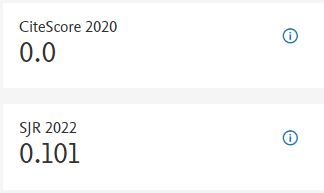THE LEGAL FRAMEWORK FOR ADDRESSING THE IMPACT OF CLIMATE CHANGE ON LOCAL COMMUNITIES: THE NIGERIA PERSPECTIVE
DOI:
https://doi.org/10.7492/b4956744Abstract
Climate change has been identified as a huge global threat to human existence with negative consequences on the lives of billions of people on Earth as it possess a great danger to everyone’s physical and mental health. The Global South is bearing the brunt of those impacts due to under investment that hinders economic growth and as a result it is socially and economically disadvantaged. Climate change is triggered by certain emissions caused by human activities that continue to make significant changes in the atmospheric condition. The aim of this paper is to critically examine the legal framework for combating the impacts of climate change in the global south using Nigeria as a case study. Adopting a doctrinal legal research methodology, the study finds that Nigeria's legal framework for climate change regulation faces numerous challenges that impede its effectiveness. Also in addition, environmental injustice has been found as one of the reasons inhibiting the practicality of the legal framework of climate change in Nigeria. This paper concludes that the laws put in place to govern environmental protection in Nigeria are grossly inadequate. It recommends that new laws on climate change should focus on environmental justice in order to tackle the menace of climate change in Nigeria. Climate change law must evolve to blend environmental protection with human rights, and development, in order to produce outcomes that are not only ecologically sustainable but also socially just. This will ensure policy coherence between environmental protection and socio-economic rights of the local communities bearing the negative impacts of climate change.

















